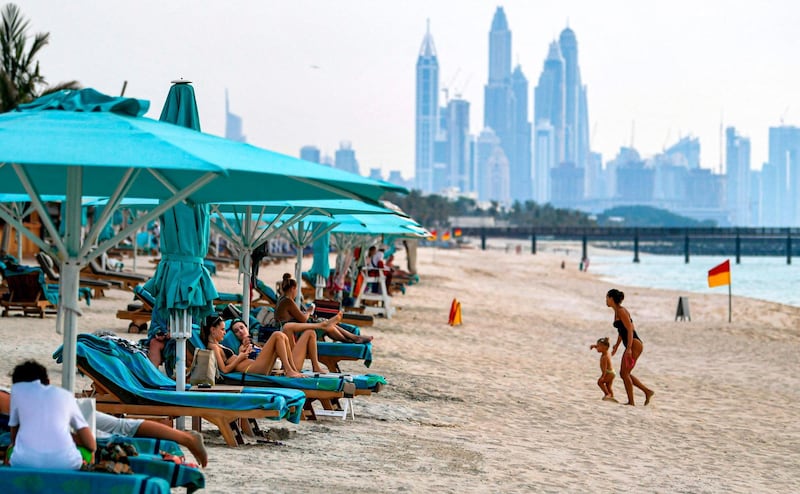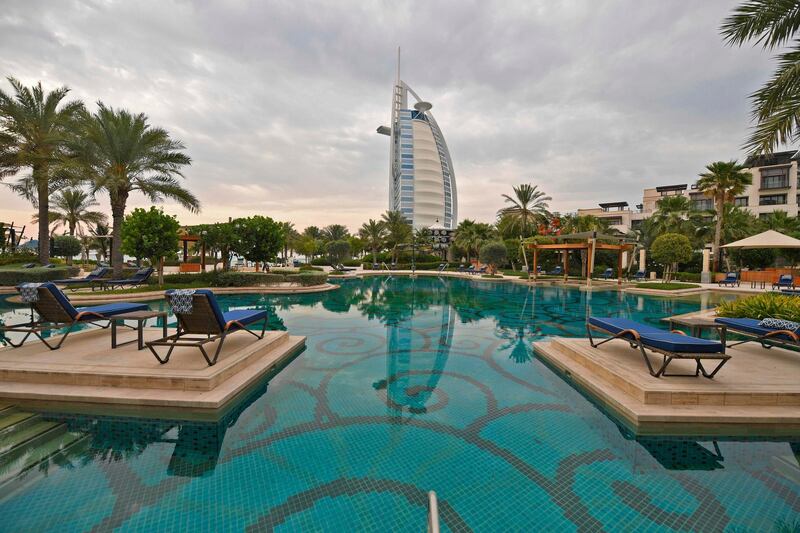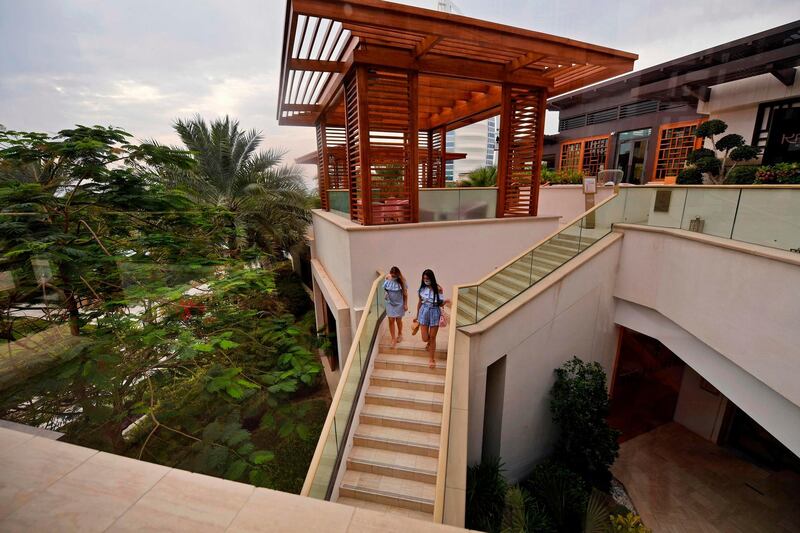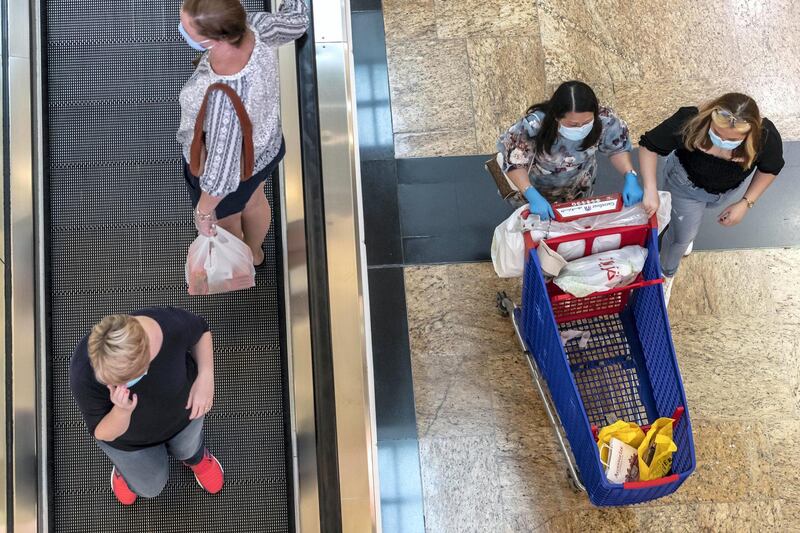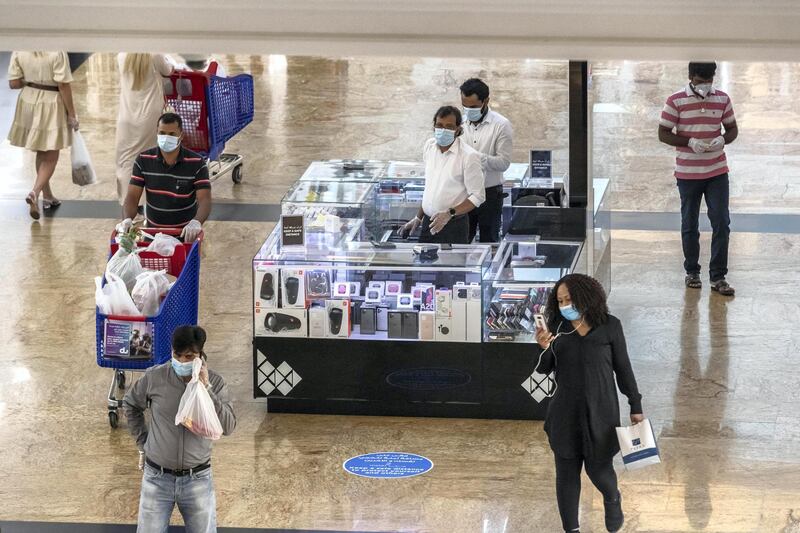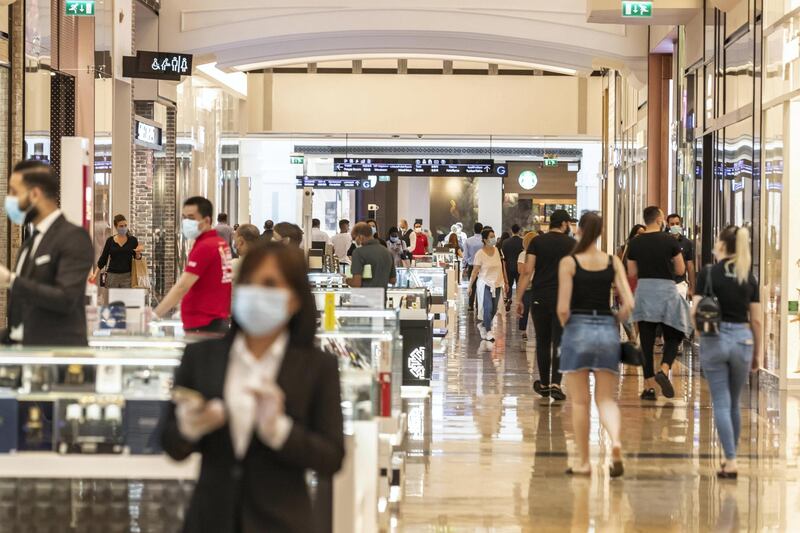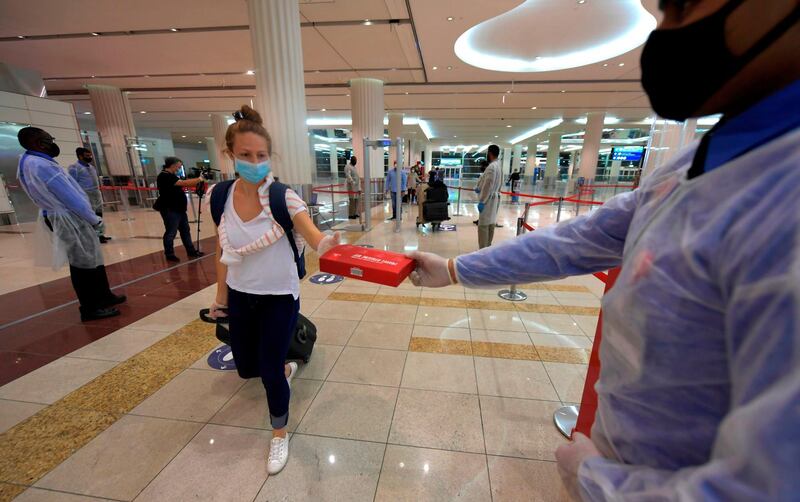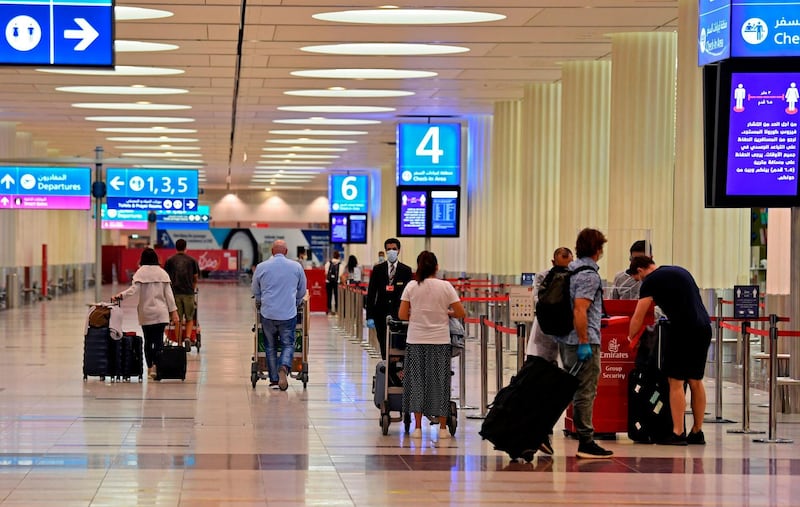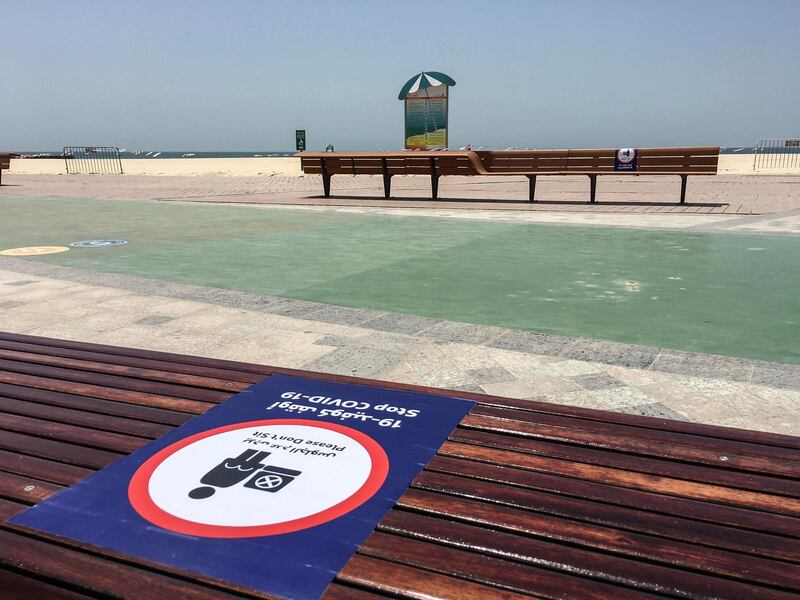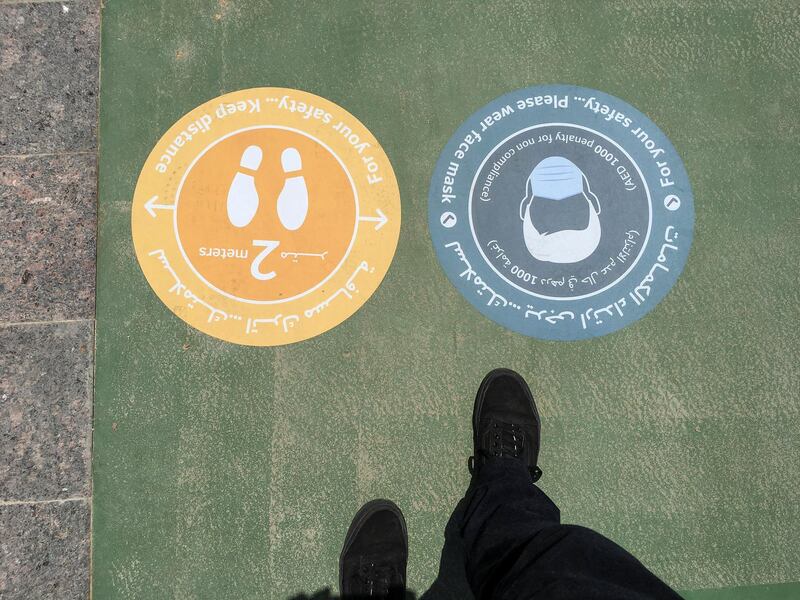As the economic impact of Covid-19 and subsequent shutdown bites into personal budgets across the world, UAE residents are among the many trimming their living costs.
While some are reacting to salary squeezes or job losses, others have adjusted their spending habits in anticipation of financial migraines ahead.
With the stay-at-home measures now easing across the Emirates, five residents explain how they have cut back on their spending over the past couple of months:
'We've cut our spending by Dh6,000 a month'
When the knock-on effect of movement restrictions designed to curb the spread of the virus reduced their income to one salary, Abu Dhabi residents Emily and Nader Musharbash, from the UK, looked to economise where they could. However, the couple were determined not to let an austerity sweep affect the wellbeing of their child, Tia.
“We had to re-evaluate how much food we buy each week, focusing on our 18-month-old daughter getting better quality food than us,” says Ms Musharbash, 34.
“That's also meant purchasing less vegan food – we’re not vegan but prefer to avoid dairy products – as it’s more expensive. We've obviously stopped going for dinners and lunches, but that has meant we don't order in either. We also had to temporarily let go of our nanny and hire car.”
The Yas Island-based family’s spending revision came as dance teacher Mr Nader’s work dried up, with the school closing and private lessons halted.
“He now has a few private sessions running via Zoom, but he [effectively] lost all his salary in one hit,” says Ms Musharbash, a marketing manager for Abu Dhabi’s Bodytree Wellness Studio, which retained its staff.
“I have managed to keep my job as I turned the company digital in order to keep it running, and provide the community with support on their health and wellness journey when everyone needs it more than ever.”
The family also reduced major costs by securing a healthy rent reduction.
“We've saved a whopping Dh6,000 per month [off our overall outgoings],” she adds. “That’s a big deal, given that we are living on one salary right now.”
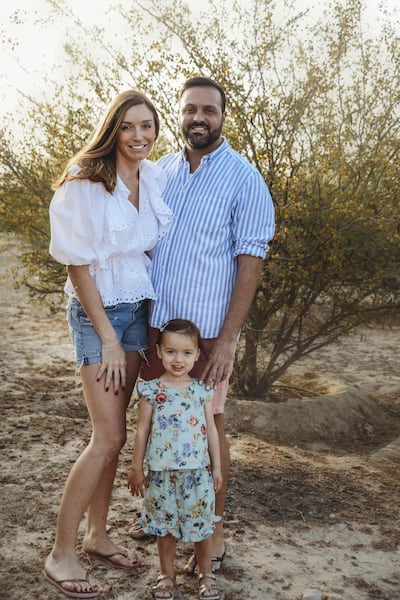
'We slashed our electricity bill by using fans instead of AC'
Having recently upgraded to a five bedroom home to accommodate a growing family, Rosa Bullock, owner of Dubai marketing and events firm Sociate, and her husband Stewart were keen to cut costs. Using fans instead of air-conditioning throughout their Al Furjan property, they have managed to reduce their electricity bill to less than their previous two-bed home.
“Just before lockdown we moved to a bigger house,” says Ms Bullock, 33, from England.
“We were conscious, with much more space, our bills could go through the roof, so we bought four fans for the main rooms as that uses only about three per cent of the electricity.”
Her husband, head of sales for a Dubai trucks firm, researched the benefits and paid Dh160 per fan.
Ms Bullock, who shares the house with her daughter Ayda Grace, 3, the family's nanny and two dogs, plans to continue with fans even when the economic uncertainty subsides.

'I budget Dh800-Dh1,000 per month to cover my personal expenses and groceries'
Melissa Pinto, from India, who was born in the UAE and grew up here, lost her job with an oil and gas company on April 22. She now shares an apartment with another family to save money.
“I live in Karama, one of Dubai’s low-cost areas, working on a budget to save as much as possible,” says Ms Pinto, 22, who had wisely set funds aside and is living cautiously to conserve them.
“Budgeting has been hard but the best way I have saved is buying groceries and personal items during sale times, avoiding unnecessary spending ordering-in, sacrificing my three desserts per week as well as Starbucks. I cook meals for an entire week on one day or maximum thrice a week to cut per-meal spending.”
With her rent paid until July, Ms Pinto is budgeting Dh800-Dh1,000 per month for personal expenses and groceries. She began economising in March when her employers lowered her base salary by 10 per cent.
“It was difficult to adapt but I have saved enough to survive for eight-12 months if I continue to follow my budget and avoid health issues," she says.
Ms Pinto hopes she can remain in the country long enough to find new work in the oil industry “or any sector for that matter as I am still young and can broaden my scope”.
In the meantime, she’s using her time to improve photography and editing skills for her foodie Instagram page, while “pushing myself to write more on my blog to help others during this pandemic”.
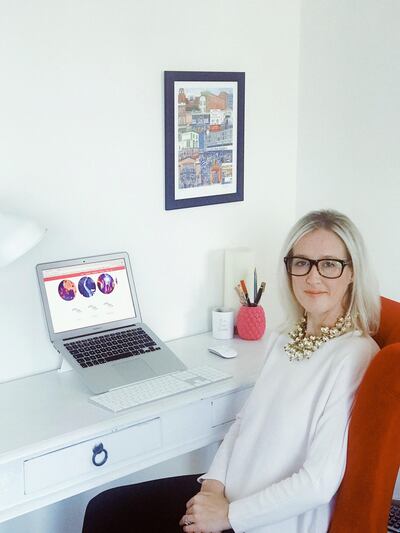
'We abandoned our move to a villa from an apartment'
The largest long-term saving Maxine English and her husband have made is shelving their move to a villa from an Internet City apartment.
An events agency owner, her business halted when the stay-at-home directives started.
“We were due to move in June and have taken the decision to stay in our current apartment,” says Ms English, who runs Park Lane Live. “We have been offered a discounted rent to stay and it seems like the sensible option, regardless of the current situation.
“As live events have been affected so badly, and we currently have no vision when that will lift, we have to operate within our limits until we are able to get back to work in whatever format we are able within new guidelines.”
The couple adopted broad cost-cutting measures, including baking and altering grocery shopping regimes.
This includes doing the “majority” of their shopping in either Lulu or Carrefour, with Waitrose or Spinneys for specific items unavailable in other outlets – and online ordering for “an incredible saving” on quality meats.
“Eating out was a large luxury for us,” says Ms English. “We love to socialise, so staying home has automatically saved us money. We also have stopped ordering takeout and turned instead to ‘fakeaways’ using amazing recipes some outlets have released to make our own versions; this is so much fun and way cheaper than ordering.”
As a member of Facebook group Shop Well For Less – a resource for discounts and shopping tips – Ms English already had an eye on domestic budgeting.
“It has been easy to adopt,” she adds. “The lack of ability to go out and the lockdown concentrated our minds and, as they say, if you do things more than seven times they become habit. We absolutely will continue to do this."

'We've cut 70 per cent of our average monthly spend on food and entertaining'
For wedding planner Tania Kreindler most of her business has moved to later in the year and 2021, prompting her and husband Steve, 43, to rethink convenience dining habits.
“We’ve realised how much we spend on takeaways, especially when we are both out at work and meetings all day,” says the 41-year-old.
“We’ve saved on eating out, entertaining friends at home, takeaways and entertaining clients, which has saved us in excess of 70 per cent of our average monthly spend on food and entertaining.”
For Ms Kreindler the motivation was more safety than fiscal at first, after speaking to her brother, a UK-based doctor.
“He had been advising us of the ramifications of catching Covid-19 long before we were in lockdown, and the length of time it could stay on cardboard or packaging.
“We knew we needed to reduce exposure and be more in control of what came into our home and our stomachs; we are being more creative in the kitchen, ensuring we waste less. We’ve become more responsible and resourceful, which feels great," she says.
While enquiries for My Dubai Wedding’s services in 2021 and 2022 have “exponentially” increased, and several bookings secured, Ms Kriendler is directing her culinary savings towards an imminent move to Dubai Hills from Palm Jumeirah.
“We are putting the money towards purchasing necessities like curtains, reupholstering our sofa and plants for the new garden,” she adds.
_____________




